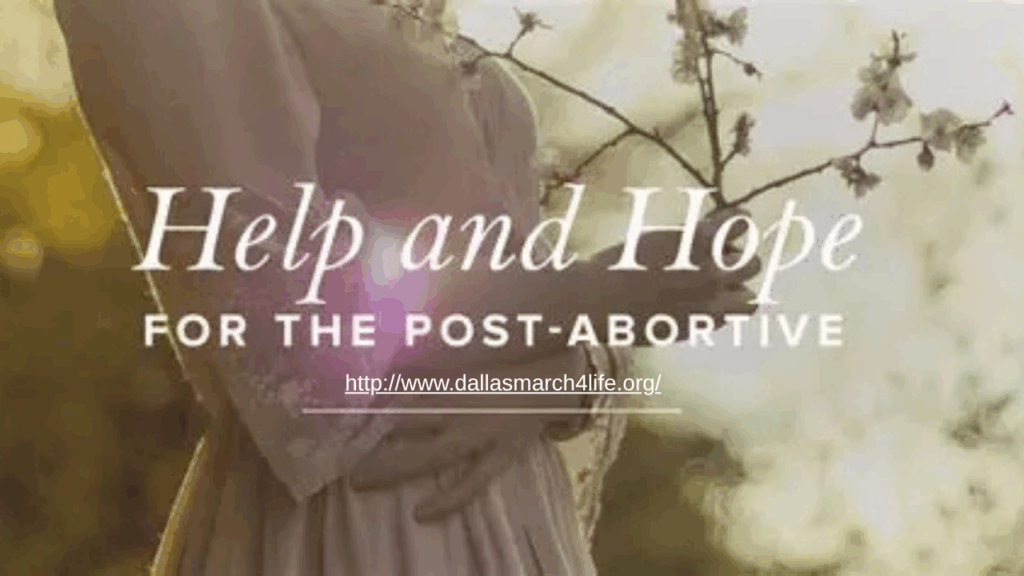
Experiencing anxiety after an abortion is a deeply personal and often isolating struggle. While some individuals may feel relief following the procedure, others encounter persistent emotional unrest, guilt, or worry that can affect daily life. Post-abortion anxiety is real and valid, and addressing it requires compassionate, holistic care that honors both the mind and the spirit. At Dallas March for Life, we provide faith-based, individualized support designed to help people heal emotionally, mentally, and spiritually.
Understanding Post-Abortion Anxiety
Anxiety following abortion can manifest in many ways, from racing thoughts and sleepless nights to emotional withdrawal and difficulty concentrating. These responses are often compounded by guilt, moral conflict, or social stigma, making it challenging to process emotions alone. Recognizing these symptoms is a crucial first step toward healing.
Common Signs and Symptoms
- Persistent feelings of worry or fear
- Panic attacks or emotional tension
- Difficulty sleeping or recurring nightmares
- Avoidance of conversations or environments connected to the experience
- Feelings of guilt, shame, or emotional numbness
It is important to understand that these reactions are natural responses to emotional and spiritual challenges. Compassionate care and professional support can help individuals navigate this difficult period and find lasting peace.
The Role of Faith-Based Support in Healing
Faith can be a powerful foundation for emotional recovery. Integrating spiritual guidance with professional mental health treatment allows individuals to address both internal and external sources of anxiety.
Holistic Healing for the Mind, Body, and Spirit
At Dallas March for Life, our programs focus on treating the whole person. Faith-based support provides a safe space to process emotions while reconnecting with spiritual values. Holistic practices such as mindfulness, meditation, journaling, and prayer complement therapeutic interventions to foster emotional resilience and spiritual renewal.
Inpatient and Outpatient Care Options
- Inpatient care offers structured, intensive support for individuals who need to focus fully on emotional and spiritual healing. This environment provides daily counseling, wellness activities, and faith-guided reflection.
- Outpatient care allows individuals to maintain daily responsibilities while participating in counseling sessions, group therapy, and holistic healing practices.
Both options emphasize personalized care tailored to each person’s unique emotional and spiritual needs.
Practical Strategies for Managing Post-Abortion Anxiety
Alongside professional support, there are everyday strategies that can help individuals reduce anxiety and build emotional strength:
- Mindfulness and deep breathing exercises to calm the mind and reduce stress
- Journaling to process emotions and identify triggers
- Support groups or mentorship for shared experiences and accountability
- Self-care routines including healthy sleep, nutrition, and exercise
- Faith-based reflection or prayer to foster inner peace and resilience
Incorporating these strategies into daily life can reinforce the progress made through therapy and spiritual guidance.
Moving Toward Emotional and Spiritual Peace
Post-abortion anxiety can feel overwhelming, but it does not have to define a person’s future. With compassionate care, individualized therapy, and faith-based support, individuals can reclaim emotional balance and spiritual well-being. Healing is possible, and the journey begins with one step toward seeking help.
Conclusion
At Dallas March for Life, we are committed to helping individuals overcome post-abortion anxiety through a compassionate, faith-based, and holistic approach. Our professional team provides personalized care designed to restore emotional, mental, and spiritual health. If you or a loved one is struggling with post-abortion anxiety, reaching out for support today can be the first step toward lasting peace and renewal.